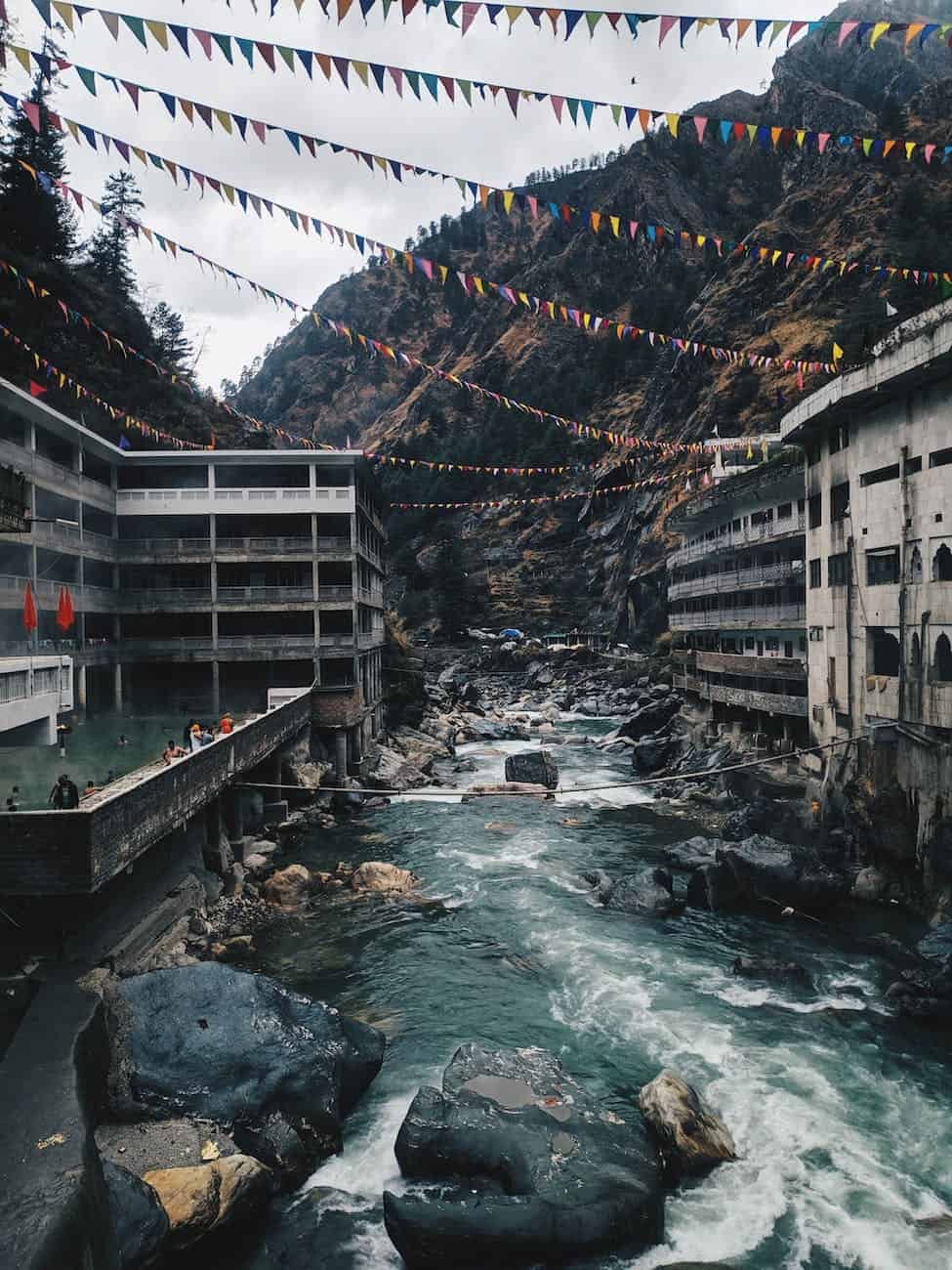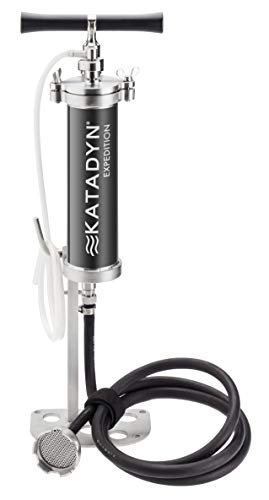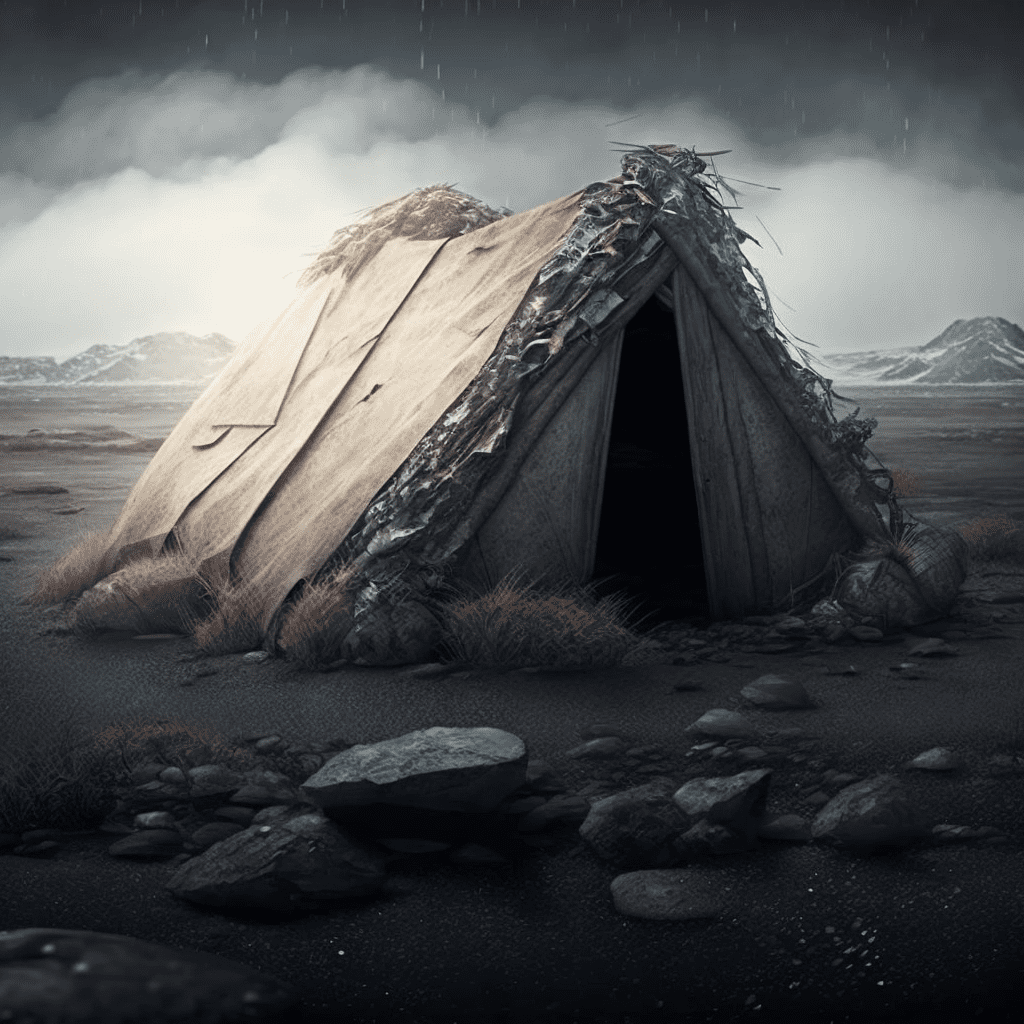Avoid these common mistakes for staying alive after a natural disaster.
It is not an easy task to survive a natural disaster, and the aftermath of such an event can be just as perilous as the event itself. In the immediate aftermath of a natural catastrophe, it is easy to become overwhelmed by the stress you have just experienced and to make mistakes that put yourself and others in danger.
This is especially true if you have been through a traumatic event in the recent past. It is crucial to be aware of the typical errors that individuals make in the aftermath of a natural catastrophe and to take precautions to avoid committing those errors in order to assist ensure that you and your loved ones remain safe.
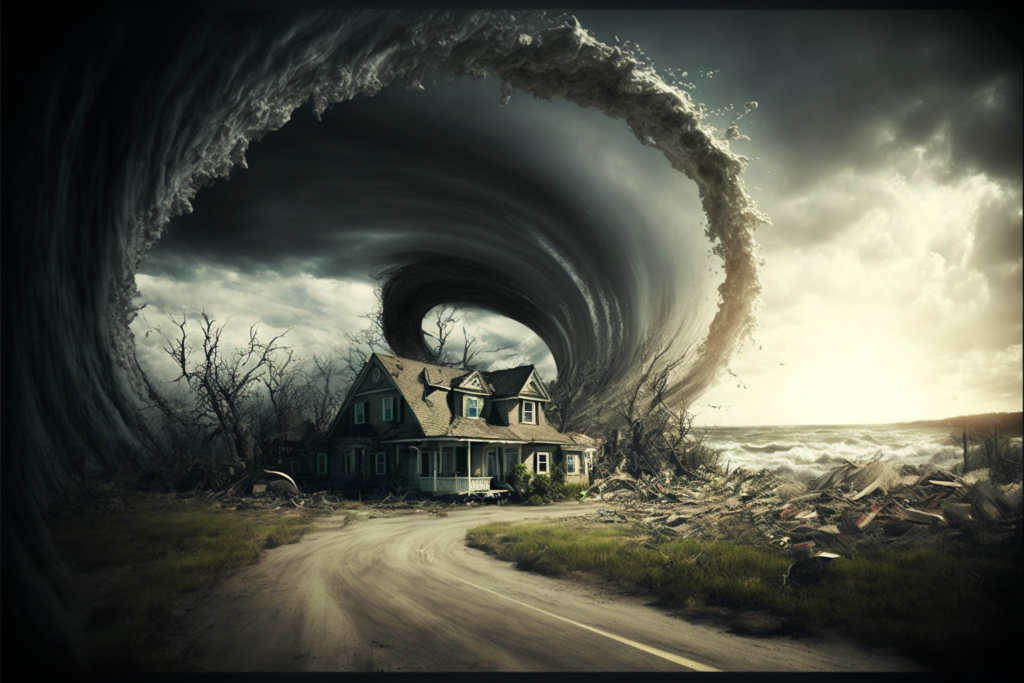
- Returning to an Unstable Building Too Soon
- Walking or Driving Through Dangerous Flood Waters
- Using Gas Appliances Before Damage Is Assessed
- Assuming the Danger Has Passed Before It’s Over
- Getting Into Unsafe Confrontations with Looters
- Not Addressing the Mental Toll the Event Took on You
- Ignoring evacuation orders
- Disregarding Emergency Instructions: The Dangers of Ignoring Evacuation Orders
- Failing to Prepare: The Consequences of Not Having a Disaster Recovery Plan
- Safeguarding Vital Documents: A Crucial Step To Take After a Natural Disaster
- Neglecting to Check on Loved ones and Community After a Disaster: A Pitfall to Avoid
- Failing to Identify and Assess Risks: A Mistake to Avoid After a Natural Disaster
- The Importance of Power Outage Preparedness in Natural Disaster Situations
- Proper Clean-up Procedures: A Must to Avoid Further Dangers After a Natural Disaster
After a natural disaster, one of the most common and sometimes catastrophic errors that individuals make is going back inside shaky buildings too soon. It is extremely risky to do this if the building has been damaged or if there is a possibility that it will collapse. It is vital to wait for the all-clear from emergency personnel before reentering a damaged structure. Moreover, it is important to have the building assessed by a trained specialist before reentering the facility to ensure that it is safe.
During a natural disaster, people frequently make the error of strolling or driving through dangerous flood waters. This is another common mistake. It is possible for flood waters to be tainted with sewage, chemicals, and debris, and they may also be deeper than they appear to be. It is crucial to be safe by avoiding flood waters as much as possible and only walking or driving through them if it is absolutely necessary and you are aware of the risks. The best way to stay safe is to avoid flood waters as much as possible.
Using gas appliances before having the damage examined is another mistake that should be avoided. The use of gas appliances could result in a fire or explosion in the event that a natural disaster causes a gas leak or causes other damage to the gas lines. Before utilizing gas appliances again after a natural disaster, it is critical to have them inspected by a trained specialist to guarantee that they are in a safe working condition.
After a natural disaster, it is common for people to make the error of assuming that the threat has passed before the situation has been resolved. Even if the event is concluded, there may still be dangers in the area, such as downed electrical lines, hazardous chemicals, or water that has been tainted. If you want to make sure that you and the people you care about are not put in harm’s way, it is imperative that you heed the guidance given by those in authority during an emergency and keep yourself updated on the situation.
In the aftermath of a disaster, one of the most common mistakes people make is engaging into dangerous confrontations with looters. Sadly, there are some people who will take advantage of the chaos that follows a natural disaster in order to steal from other people. Stay out of confrontations with looters if you want to keep yourself and your belongings safe, and contact the authorities if you observe looters in your neighborhood.
Last but not least, it is essential to consider the impact a natural disaster can have on your state of mind. It is imperative that you look for professional assistance if you are having a hard time emotionally after surviving a traumatic experience because it can have a long-lasting influence on your mental health. This may involve having a conversation with a therapist, participating in a support group, or calling a crisis hotline for assistance.
In conclusion, a natural catastrophe can be an upsetting and hazardous experience; but, if you are aware of the typical errors that people make in the aftermath of such an event and take precautions to prevent them, you can help secure the safety of yourself and the people you care about. It is essential to one’s overall survival to be aware of how to best prepare for, endure, and maneuver through the aftermath of the event. It is crucial to educate yourself on the risks and hazards and to follow the advise of emergency professionals, so that you can protect yourself and your family and recuperate as well as you possibly can.
Returning to an Unstable Building Too Soon
One of the most perilous errors that individuals make in the aftermath of a natural disaster is going back too quickly to a building that is still unsafe. When a building has been damaged or is at risk of collapsing, it can be exceedingly risky to enter the building. Before re-entering a building that has been damaged or is at risk of collapsing, it is necessary to wait for the all-clear from emergency officials.
There are numerous reasons for this, including the following: the building’s structural integrity may have been compromised; electrical or gas lines may have been damaged, posing a risk of explosion or fire; and there may be hidden dangers such as broken glass, sharp debris, or even wild animals that have taken refuge inside the building.
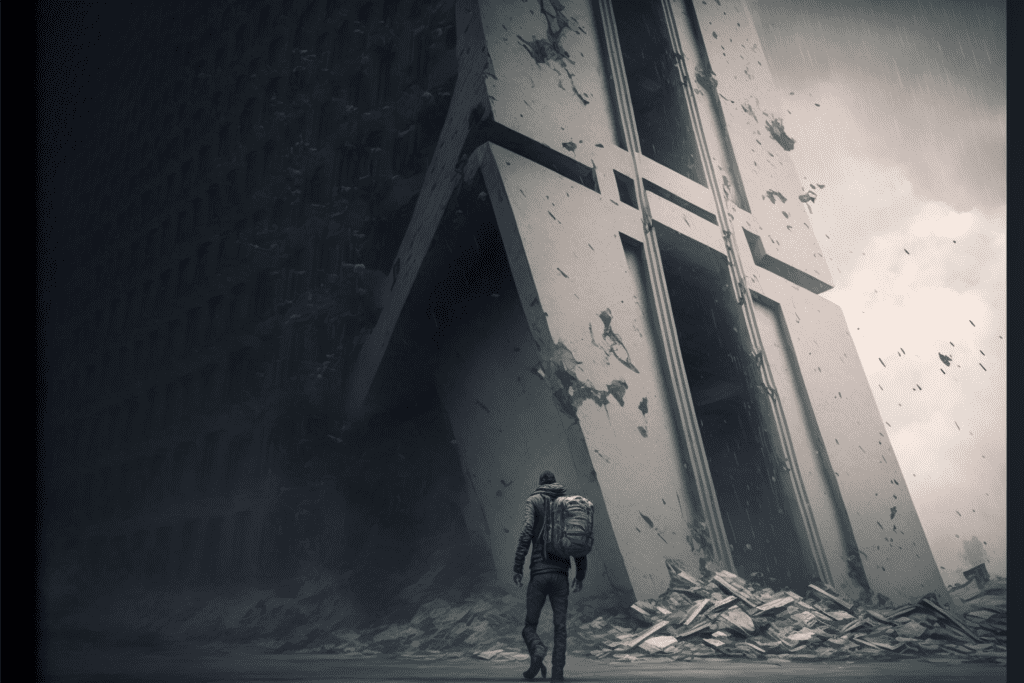
Before going back into the building, you should get it inspected by a trained expert to make sure that it is still in a safe condition. An inspector of buildings will look for any signs of structural damage, evaluate the building’s steadiness, and search for any potential dangers that may exist.
Even after the “all clear” has been given and the building has been determined to be safe, it is imperative that extreme caution be exercised while moving through the structure. Put on protective gear like hardhats and gloves, and keep an eye out for potential hazards like gas leaks, exposed electrical wires, and shaky ceilings.
It is imperative to locate alternate housing options in the event that the building is found to be too unstable or dangerous to reenter. In the aftermath of natural catastrophes, emergency shelters are established to provide a secure location for those who have been displaced from their homes. You need to get in touch with your insurance carrier as soon as possible so that a claim may be processed for the damage that was incurred.
To summarize, returning to an unstable building before it has been inspected by a professional and receiving the all-clear from emergency officials is extremely risky. Before reentering the building, it is important to wait for the all-clear from emergency officials and to have the building inspected. It is critical and essential to always keep in mind how important it is to stay safe, to approach with caution, and to have alternate plans prepared.
Walking or Driving Through Dangerous Flood Waters
Another typical error that individuals do in the aftermath of a natural disaster is either driving or walking through dangerous flood waters. The waters that are caused by floods can be dangerous and are often tainted with sewage, chemicals, and debris, which makes them a potential threat to one’s health. In addition to this, floodwaters may be significantly deeper than they appear to be, and they may also contain strong currents that can knock you off your feet.
It is essential to your safety to steer clear of floodwaters whenever it is at all possible. If you have no choice but to drive or walk through them, it is imperative that you are aware of the dangers and that you take the appropriate safety measures.
When traveling through flood waters, it is vital to wear protection clothing such as waterproof boots and gloves, and to use a stick or pole to evaluate the depth of the water ahead of you. Other items of protective gear to consider wearing include a life jacket and a backpack. It is crucial to steer clear of regions where the water is too deep to safely navigate as there is a possibility that the floodwaters are deeper than they appear to be.
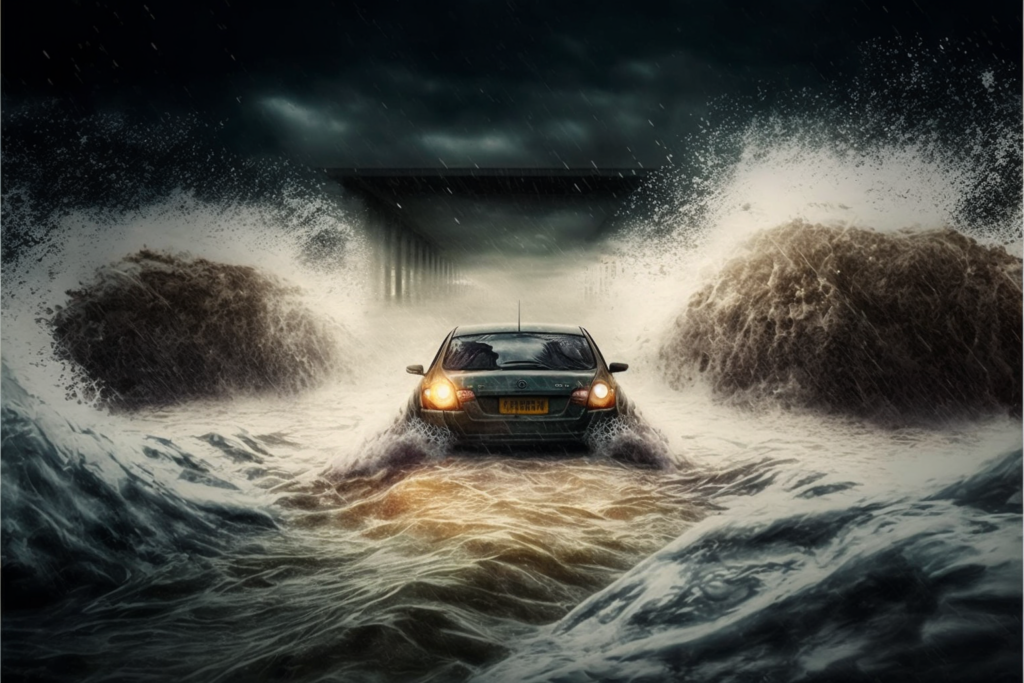
It is essential to keep in mind that a vehicle might lose control or stall in as little as 15 centimeters of water, which is equivalent to around 6 inches, when driving through floodwaters. It is essential to travel slowly and cautiously, and drivers should make every effort to avoid having to drive through floodwaters.
Keep in mind that flash floods can happen suddenly and without any prior warning, and that in order to be prepared for them, you need stay up to date on the latest weather forecasts and warnings. If an evacuation is ordered, you should always follow the directions of emergency personnel. In the event that you have no other option, you should never drive or walk across flood waters since the risk of being carried away by the water is very great.
To summarize, engaging in activities such as walking or driving in severe flood waters can be extremely risky, and it is imperative to stay away from them whenever it is possible to do so. When you have no choice but to walk or drive through floodwaters, it is critical to be aware of the dangers involved, to take the appropriate safety measures, and to keep yourself updated on the current weather. Follow the instructions given by those in charge of emergency response, and put a premium on both safety and caution.
Using Gas Appliances Before Damage Is Assessed
Another error that individuals frequently commit in the aftermath of a natural disaster is turning on gas appliances before conducting an assessment of the damage. If a natural disaster causes a gas leak or other damage to gas lines, using appliances that run on gas could result in an explosion or fire. Because of this, it is imperative to have gas appliances inspected by a trained specialist before to using them after a natural catastrophe to verify that they are in a safe condition to do so.
Turning off the gas supply is the initial step in determining whether or not gas appliances are safe to use. Turning off the main gas valve, which is normally found close to the gas meter, is the way to go about accomplishing this task. By turning off the gas supply, you will stop the flow of gas into the building, which will make it possible to inspect the various appliances without risk.
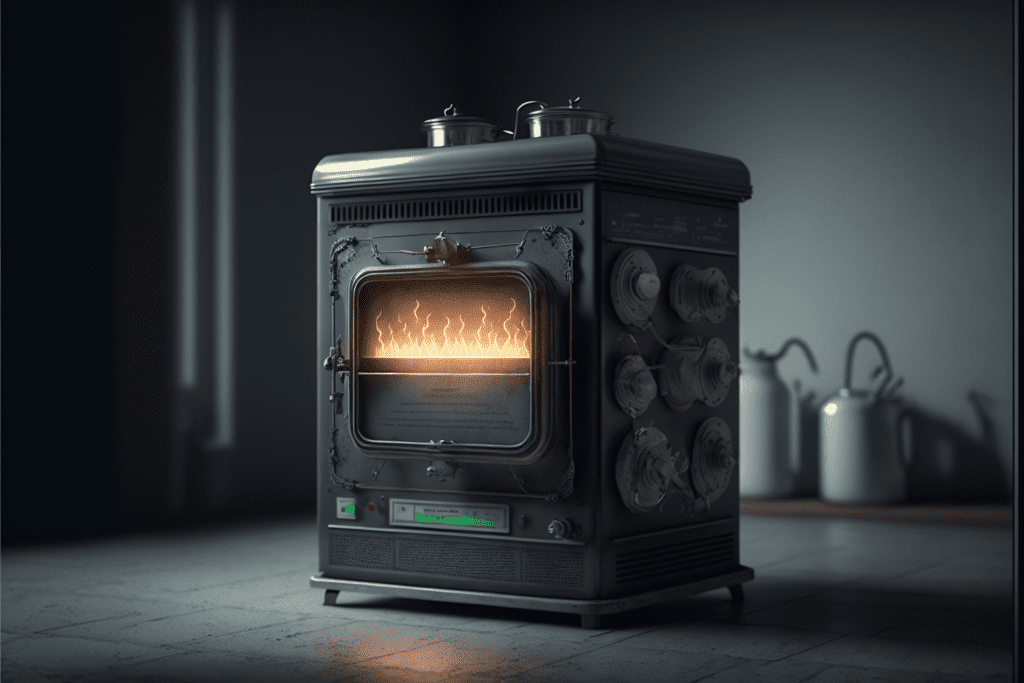
After that, it is essential to inspect to see if the appliances have any obvious damage, such as dents, cracks, or any other evidence of wear and tear. If there is obvious damage to the appliances, it is critical to have a qualified technician examine them in order to establish whether or not it is safe to use them.
In addition to this, it is essential to check for any gas leaks. It is imperative that you exit the building immediately if you detect the odor of gas and then contact the gas company. Leaks in gas lines are potentially hazardous situations that, if not handled correctly, might result in fires or explosions.
It is safe to reactivate the gas supply and resume using the appliances once they have been inspected, and any necessary repairs have been completed. Once this is complete, the gas supply can be turned back on.
In a nutshell, it is a grave error that can put people in jeopardy in the aftermath of a natural catastrophe to use gas appliances before the damage has been evaluated. Before using gas appliances again, you should make sure that the gas supply has been turned off, that there is no obvious damage, that there are no gas leaks, and that you have had a professional assess the gas appliances.
This will guarantee that you are not putting yourself or anyone else in danger. In order to avoid any additional dangers, it is essential to keep in mind the importance of safety and to listen to the guidance of trained specialists.
Assuming the Danger Has Passed Before It’s Over
Another common error that individuals make in the aftermath of a natural disaster is assuming that the threat has been eliminated before the situation has been resolved. Even if the event is ended, there is still the possibility of dangers being there, such as downed electrical lines, dangerous chemicals, or water that has been tainted. It is crucial to continue to follow the advise of emergency personnel and to be updated about the situation in order to ensure that you are not placing yourself or the people you care about in harm’s way.
Be aware that some dangers, such as structural damage to buildings or undetected leaks that can have potentially hazardous effects, may not be immediately apparent. This is another reason why it is essential to be vigilant. For instance, a tree that has fallen could have caused damage to a gas line, electrical cables, or sewage pipes, which could lead to other dangers in the future.

It is essential that you keep in mind that recovery and cleanup activities can take some time, and that it could be many days or even weeks before an area is declared safe to return to. Also, aftershocks or landslides may occur after the first event, therefore it is necessary to remain vigilant in this regard.
During a natural catastrophe, the best way to ensure one’s safety is to adhere to the instructions provided by authorities in charge of the response, to maintain a level of awareness on the state of affairs, and to be informed about any potential threats. In addition, it is essential to keep a constant watch on the weather forecast, as flash floods, storms, and other forms of danger might still occur long after the main event.
People can put themselves in harm’s way following a natural disaster by erroneously concluding the threat has passed before it is completely past. Even if the event has ended, it is imperative that you continue to heed the guidance provided by emergency personnel and keep yourself apprised of the current state of affairs to ensure that you are not placing yourself or your loved ones in risk. Also, it is essential to be aware that some dangers might not be immediately apparent, and to be ready for the recovery and cleanup activities to take some time. This is another reason why it is necessary to be prepared.
Getting Into Unsafe Confrontations with Looters
Another common error that people make in the aftermath of a natural disaster is getting into dangerous confrontations with looters. Sadly, there are some people who will take advantage of the chaos that follows a natural disaster in order to steal from other people. The individuals and the community that are impacted by this can experience mental and financial exhaustion, in addition to being put in harm’s way as a result of it.
It is necessary to avoid conflicts with looters in order to protect both yourself and your property, and it is also important to take precautions to secure your property. This involves closing and locking all windows and doors, as well as installing surveillance cameras if at all possible. It is essential to not only have a plan in place in the event that valuables, guns, and other objects that can be used to defend oneself are taken, but also to have a plan in place in the event that valuables are stolen.

In addition to this, it is important to maintain an up-to-date knowledge of the situation and be aware of the locations that have been subject to looting. Keep an eye out for anything that looks strange, and if you see it, report it to the authorities as soon as possible.
It is essential to keep in mind that looting is against the law, and that anyone found engaging in this activity is subject to arrest and possible legal action. The purpose of the police presence is to safeguard the neighborhood, and they will not hesitate to take legal action against anyone who steal from businesses.
If you find yourself in a scenario where you are challenged by a thief, it is imperative that you maintain your composure and refrain from getting into any violent altercations with them. Instead, you should make an effort to diffuse the situation and get out of there as quickly as you can. If you feel intimidated in any way, you should immediately call the police.
In a nutshell, after a natural catastrophe, making the error of engaging in risky confrontations with looters can put individuals in harm’s way and put them in danger. It is necessary to avoid conflicts with looters in order to protect both yourself and your property, and it is also important to take precautions to secure your property. Keep yourself updated on the situation, be cautious of the locations that have been looted, and contact the police as soon as you notice anything strange happening. If you are faced by a looter, you should make an effort to de-escalate the situation and flee as quickly as possible. In addition, you should keep in mind that looting is unlawful and that individuals who are caught doing it will be charged.
Not Addressing the Mental Toll the Event Took on You
Another typical mistake that individuals make in the aftermath of a natural disaster is that they fail to address the mental toll that a natural disaster can take on them. It is imperative that you look for professional assistance if you are having a hard time emotionally after surviving a traumatic experience because it can have a long-lasting influence on your mental health.
The aftermath of a natural disaster can trigger a complex spectrum of feelings, from panic and dread to rage and melancholy. It is essential to acknowledge these feelings and have an awareness of the fact that they are a natural reaction to the traumatic experience that you went through.

It is crucial to take care of yourself both physically and emotionally in order to reduce the impact that a natural disaster can have on your mental health. This includes obtaining a sufficient amount of sleep, eating a healthy diet, and working out on a regular basis. Keep in touch with your loved ones and friends, and don’t be afraid to talk about how you’re feeling with those you care about or with a professional counselor.
When it comes to dealing with the aftermath of a natural catastrophe, seeking the assistance of a therapist or counselor can be very beneficial. They can offer you support and direction to help you cope with the traumatic experience that you’ve had, and they can also assist you in developing skills to manage your feelings and go on with your life.
It is essential that you look for professional assistance if you are having symptoms of post-traumatic stress disorder (PTSD), including flashbacks, nightmares, and avoidance behaviors, as well as panic attacks, sadness, and anxiety. Those who have survived a natural disaster may face a huge obstacle in the form of post-traumatic stress disorder (PTSD).
In addition, joining a support group comprised of people who have been through situations like to your own can be a wonderful opportunity to connect with others who understand what you are going through and can provide you comfort and understanding.
In conclusion, ignoring the mental toll that a natural catastrophe can take on you is a mistake that can have long-term implications on your mental health. These impacts can range from mild to severe. It is vital to take care of yourself, both physically and emotionally, and to get help if you are hurting emotionally. This includes taking care of your physical health as well as your mental health. This may involve having a conversation with a therapist, becoming a member of a support group, or calling a crisis hotline for assistance. It is vital to remember that the mental toll is equally as significant as the physical toll and to seek care as soon as possible. Both of these actions can help expedite healing.
Disregarding Emergency Instructions: The Dangers of Ignoring Evacuation Orders
It is essential to comply with the instructions given by emergency officials and to leave the area when you are told to do so. Ignoring the orders to evacuate could put you and others in harm’s way.
After a natural disaster, it is a grave error to disobey evacuation orders, which puts not only yourself but also others in jeopardy. Officials in charge of emergency response will issue evacuation orders for a specific cause; it is imperative that you follow these directions in order to keep yourself safe.
In the event of a natural disaster, officials in charge of emergency preparedness will keep a careful eye on the unfolding events and will issue orders to evacuate areas if they consider that remaining there could put people in risk. In the event that a storm is predicted to make landfall in a certain region, for instance, the local authorities will issue evacuation orders to guarantee the population’ safety.
Ignoring an order to evacuate can put you in danger, and it can also put pressure on emergency services that are working to keep other people safe. Moreover, it may obstruct the movement of emergency vehicles and personnel, making it more difficult for them to react to additional calls for assistance.
It is crucial to become familiar with the evacuation routes and protocols for your area well in advance of a natural catastrophe. Moreover, it is important to have a plan in place for what you will do in the event of an emergency. This involves having an emergency kit on hand, being familiar with the evacuation routes, and having a strategy in place for maintaining communication with members of the family.
When an order to evacuate a building is given, it is critical for everyone to leave the building as soon as possible and to adhere to the directions given by emergency officials. It is crucial to have a plan in place for where you will take shelter in the event that you are unable to leave, and it is also important to be informed about the situation.
It is essential to keep in mind that the authorities may issue new evacuation orders as the situation develops. As a result, it is critical to maintain awareness of the most recent events and to be ready to adjust your preparations in response to any new information. In addition, when you have to evacuate your home, it is imperative that you take only the items that are absolutely necessary and that you keep all of your important documents, such as your driver’s license and insurance papers, on you at all times in a safe and secure location and, if at all possible, also in a digital format.
After a natural disaster, it is a critical error to disobey evacuation orders because doing so puts not only oneself but also other people in jeopardy. It is essential to become familiar with the evacuation routes and protocols for your area, to formulate a plan, and to adhere to the directions provided by emergency personnel. Keep yourself updated on the situation, be ready to make changes to your plans, and don’t forget to take care of the things that are vital as well as the documents that are significant to you. In any situation of this kind, making sure everyone is safe is your top priority, and you should always listen to what the authorities have to say.
Failing to Prepare: The Consequences of Not Having a Disaster Recovery Plan
It is essential to have a strategy in place detailing what actions you will do in the event of a crisis before a natural disaster strikes. This involves having an emergency kit on hand, being familiar with the evacuation routes, and having a strategy in place for maintaining communication with members of the family.
It is a mistake that can put you and the people you care about in risk if you do not have a plan for what you and your loved ones will do in the event of a natural disaster. If you take the time to put together a plan before a natural disaster strikes, it can help ensure that you are prepared for what to do and how to protect yourself.
Before making a plan, you should educate yourself on the kinds of natural disasters that are most likely to occur in your region and the measures you need to take to protect yourself and the people you care about. This involves having an emergency kit at the ready, being familiar with the evacuation routes and protocols, and having a plan in place for communicating with members of the family.
It is important to have basic supplies on hand in case of an emergency, such as food, water, a first-aid kit, flashlights, and a radio that is either battery-operated or manually operated. A list of emergency contact numbers, including those for local emergency services, family and friends, and insurance providers, is another thing that should be kept in a handy location.
Because many emergency shelters do not admit pets, it is essential that you make preparations in advance for what you will do with your animals in the event of a disaster. It is also a good idea to think about having a predetermined site where you can meet up with friends and family members after the event so that you can check in with each other.
It is also a good idea to practice the plan so that everyone is aware of what to do in the event of an emergency and feels as though they are prepared.
In conclusion, failing to make preparations for what you and your loved ones will do in the event of a natural catastrophe is a critical error that can put you and them in harm’s way. It is critical that you educate yourself on the different kinds of natural disasters that are most likely to strike in your region, and that you devise a plan that includes an emergency kit, evacuation routes and protocols, and a strategy for maintaining communication with members of your family. The strategy should be practiced, and being educated about potential risks should be done so as to assure safety and mental well-being.
Safeguarding Vital Documents: A Crucial Step To Take After a Natural Disaster
Homes and companies can sustain significant damage from natural catastrophes, and crucial documents like birth certificates, passports, and insurance policies may be lost in the process. It is essential to either save digital versions of these papers in a safe cloud storage service or store the physical copies in a container that is impervious to water and fire.
An oversight that can have severe repercussions after a natural disaster is one in which crucial documents, such as birth certificates, passports, and insurance policies, are not adequately protected. These documents are frequently required in order to gain access to emergency services, file insurance claims, and begin the process of rebuilding your life following an incident. Should you lose these documents, the process of recovery may become significantly more challenging and time-consuming.
To ensure the safety of vital records, it is essential to store them in a container that is both watertight and fireproof, or else to maintain digital copies of the records in a trustworthy online cloud storage. It is also a good idea to make duplicates of the documents and to keep them in a separate area, such as a safety deposit box, so that they can be accessible even if the original copies are lost or damaged. This can be accomplished by keeping the copies in a separate location.
You should also have electronic copies of crucial documents, and you should save those electronic copies on the cloud. This can include copies of insurance policies, bank account details, and any other vital information that may be required in the event of an unexpected emergency.
In addition to this, it is essential to keep these papers up to date and to check on them on a frequent basis to ensure that they have the most recent information. This may involve renewing licenses and identification cards that have expired as well as changing contact information.
In a nutshell, failing to safely store essential documents is a mistake that, in the aftermath of a natural disaster, can have catastrophic repercussions. It is imperative that vital papers be stored in a container that is both watertight and fireproof, that digital copies of the documents be kept in a safe cloud storage service, and that physical copies of the documents be kept in a location that is distinct from the originals. In addition to this, it is essential to keep these papers up to date and to check on them on a frequent basis to ensure that they have the most recent information. Because of this, the process of healing may become much more manageable and run more smoothly.
Neglecting to Check on Loved ones and Community After a Disaster: A Pitfall to Avoid
Everyone in a community can go through something traumatic together in the aftermath of a natural disaster. It is essential to make sure that your neighbors are okay and to provide aid to them whenever it is required.
The oversight of not checking on one’s neighbors in the aftermath of a natural disaster is one that, if left uncorrected, can have severe repercussions, not only for those neighbors but also for the community as a whole. People frequently go through traumatic experiences in the aftermath of natural disasters and may require assistance and support in the days, weeks, and even months that follow.
If you want to make sure that your neighbors are okay, all you have to do is knock on their door and ask them if they require any assistance or if there is anything that you can do to aid them. This could be making an offer to deliver them food, water, or other necessities, or providing assistance in the cleanup and reconstruction efforts.
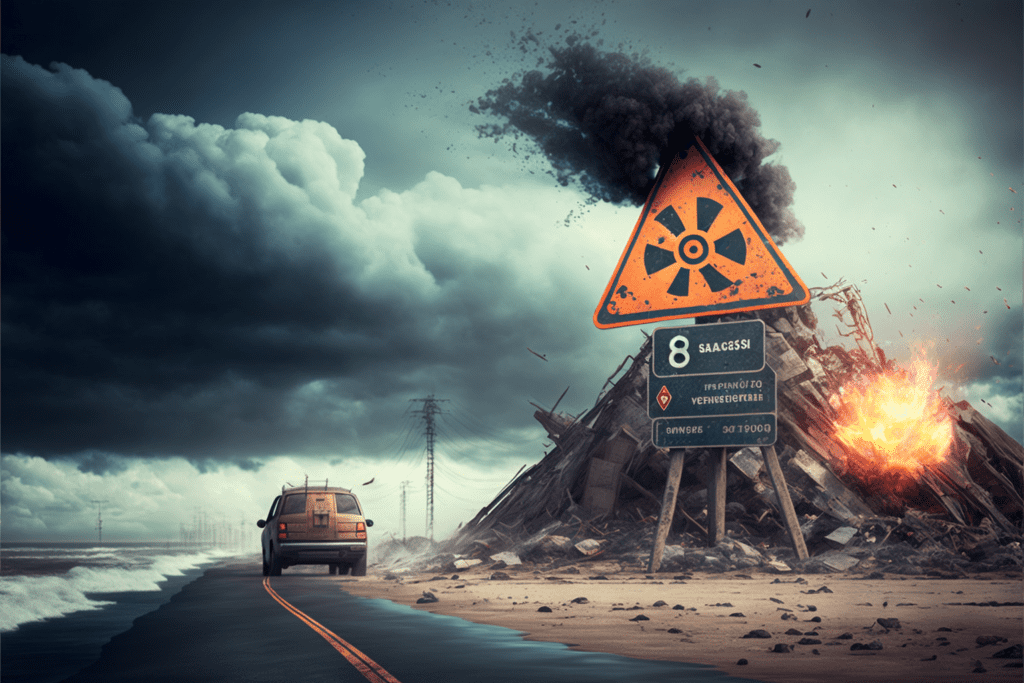
It may also involve supporting people with more specific needs, such as assisting them in securing their houses or even providing a place for them to reside temporarily. It’s possible that some of your neighbors require additional support and attention because they are elderly, disabled, or have some other kind of special need.
By assisting your neighbors, you can not only make your community stronger but also make it more resistant to the effects of any future natural disasters.
In addition, checking on your neighbors can help you grasp the scope of the disaster and can assist you in evaluating any potential dangers, such as downed power lines, leaks, or structural damage. Checking on your neighbors is a good idea in any emergency situation.
In conclusion, failing to check on one’s neighbors in the aftermath of a natural disaster is a grave error that can have severe repercussions, not just for one’s neighbors but also for the community as a whole. If you check in on your neighbors, you may lend them emotional support, you can assist them in securing their houses, and you can help the community become more resilient. It is essential to show initiative, to be proactive, and to provide assistance and support to individuals who are in need of these things.
Failing to Identify and Assess Risks: A Mistake to Avoid After a Natural Disaster
Because every natural catastrophe has its own unique set of risks, it is essential to be aware of the potential risks that are unique to your region and to take precautions to protect oneself in accordance with those risks.
After a natural disaster, it is a mistake to fail to recognize the potential dangers that exist in the aftermath of the event. This mistake can put you and others in danger. Because each natural disaster presents its own unique set of dangers, it is essential to have an accurate understanding of the specific threats posed by the upcoming event and to take appropriate precautions to safeguard oneself against them.
During a hurricane, for instance, severe winds, flooding, and storm surges are all potential dangers that could occur. Hazards that may present themselves during a wildfire include smoke, ash, and the possibility of structure damage. Aftershocks, landslides, and gas leaks are all examples of potential dangers associated with earthquakes.
It is essential that you are aware of these dangers and that you take measures to protect yourself from them. These can include remaining inside, avoiding locations that are prone to flooding, wearing a mask to guard against smoke, and having a plan in place in the event that there is an aftershock.
Maintaining a high level of awareness is essential as well, given that new risks may materialize even after the primary event has concluded. This involves keeping up to speed on the newest news and advisories, as well as checking the latest weather forecasts.
In addition, it is essential to take precautions against potential dangers, such as tying down stray things outside, formulating a strategy to follow in the event of an emergency, and maintaining a list of relevant emergency contact numbers.
In a nutshell, following a natural disaster, making the mistake of not being aware of the potential dangers that exist is a mistake that can put you and others in risk. It is necessary to be aware of the specific dangers that are linked with the event and to take actions to protect oneself properly. Moreover, it is crucial to remain updated about any new dangers and to take precautions to avoid them. In order to be safe and avoid any dangers, it is essential to pay attention to the direction that is being given by the authorities and to remain informed about the current situation.
The Importance of Power Outage Preparedness in Natural Disaster Situations
Power disruptions are sometimes the result of natural disasters. It is essential to have backup power sources and emergency lights ready in the event that there is a loss of electrical power.
After a natural disaster, one of the most common mistakes people make is that they are unprepared for power outages, which can both cause a nuisance and put people in danger. Power failures are quite prevalent in the aftermath of natural disasters, and their duration can range from several hours to many weeks. Because of this, it may become difficult for people to maintain their normal routines and keep themselves safe, as well as for important services like hospitals, which may become disrupted.
It is essential to be equipped with backup power sources and emergency lighting in order to be ready for when the power goes out. These might contain things like a generator, a radio that runs on batteries or can be wound by hand, flashlights, and candles. It is essential to have a backup power supply for electrical devices such as mobile phones and computers. Also, it is useful to have a refrigerator and to keep some water bottles in the freezer so that food will stay fresh for a longer period of time.
In addition to this, it is essential to have a supply of non-perishable food, water, and other necessities that will last for several days. Also, in the event that power outages continue for a longer period of time than anticipated, having a manual can opener, matches, and a burner that runs on propane or a camping stove might be quite beneficial.
It is also vital to be aware of the dangers associated with backup power sources and to utilize them responsibly. One way to do this is to avoid using gas-powered generators inside of buildings or in other enclosed areas.
In a nutshell, failing to make enough preparations for potential power disruptions in the aftermath of a natural catastrophe is a mistake that can put people in danger and cause a significant amount of hardship. In order to be ready for a loss of electricity, one must have backup power sources, emergency lights, and sufficient quantities of non-perishable food, water, and other supplies on hand. It is essential to be aware of the potential risks posed by backup power sources and to employ appropriate precautions when using them. Keeping people safe and allowing them to continue their normal activities in the event of an emergency can be made easier if they are prepared for power disruptions.
Proper Clean-up Procedures: A Must to Avoid Further Dangers After a Natural Disaster
It is vital to ensure that any cleanup efforts following a natural disaster are carried out in a risk-free manner. Attempting to clean up in an improper manner might result in additional injuries and risks, which is why it is essential to don protective gear and adhere to correct cleaning and disposal methods.
A error that can lead to more injuries and hazards following a natural catastrophe is one that does not adequately clean up the affected area. It is vital to ensure that any cleanup efforts following a natural disaster are carried out in a risk-free manner.
When working with potentially harmful substances, it is critical to outfit oneself with the right personal protection equipment, such as gloves, masks, and goggles. Put on a pair of shoes or boots that are waterproof in areas where there is standing water to reduce the risk of slipping and falling.
When it comes to cleaning up, it is essential to make use of the appropriate tools and equipment, such as heavy-duty rakes, shovels, and brooms to clear debris and remove standing water from the area. Also, it is essential to be aware of potential dangers, such as shattered glass, pointed metal, and other debris that may be present after a tragedy has occurred.
During cleaning up, it is essential to adhere to the appropriate disposal processes, as different types of material can be disposed of in different ways. Materials that are potentially harmful, such as chemicals or asbestos, need to be disposed of in a certain manner and should only be handled by trained personnel.
It is essential to be mindful of the potential growth of mold and bacteria in the aftermath of a disaster, particularly in areas that are warm and humid, and to take the necessary actions to forestall their spread.
In a nutshell, failing to clean up after a natural catastrophe in the appropriate manner is a mistake that might result in more injuries and hazards. In order to clean up in a safe manner, one must be aware of potential dangers, wear the appropriate protective gear, use the appropriate tools and equipment, follow reasonable disposal procedures, and use proper tools and equipment. Other potential dangers include broken glass, sharp metal, and bacteria. If you don’t follow these safety standards, you could make a situation that’s already challenging even worse. It is essential to be aware of these dangers, to take the necessary precautions, and to follow the guidelines provided by the authorities in order to effectively clean up the area and reduce the likelihood of any subsequent risks.

